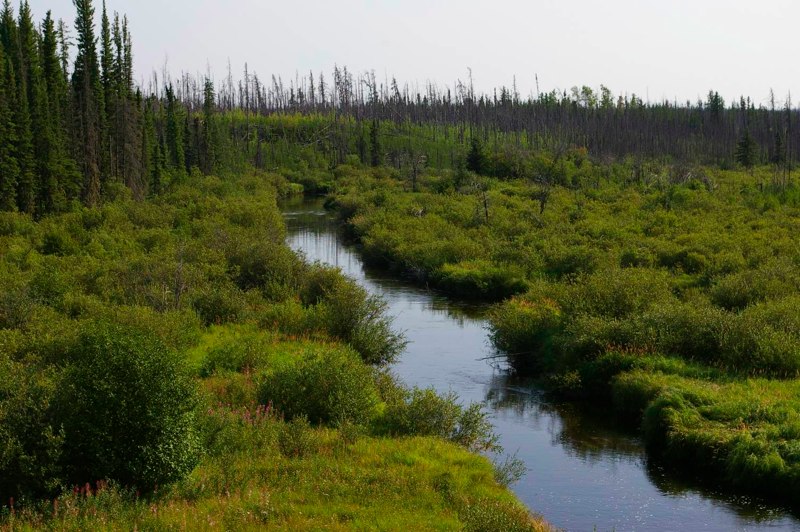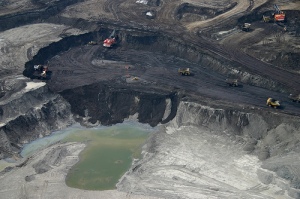The picture below is what, last Friday, Canadian Prime Minister Stephen Harper called “nature’s biggest unusable oil spill”:

Unlike our Prime Minister, the First Nations who call Northern Alberta home don’t think of this land of muskeg and forest as an oil spill. They call it home, home for them and for the animals and plants that live there and have provided sustenance for them since time before memory.
Harper’s comment is illustrative of the kind of thinking that has got us to the brink of environmental collapse, with global climate destabilization a reality and ocean acidification poised to destroy marine biodiversity. Wendell Berry, American farmer and poet, argues that wherever we are living, we are in trouble because of a “land-destroying economy” that pursues “production-by-exhaustion”. Mountain-top removal to mine coal is one clear example of this, but extraction of oil in the tar sands is another one. Berry recently addressed a gathering at the Land Institute in Salinas, Kansas:
Extracting fossil fuels from the ground is dangerous, and so is the way those fuels are used to work the ground in farming.
The mining of the forests and soil, along with the extraction of fossil fuels, may have started innocently, but since the European conquest of the Americas, “It took us only a little more than 200 years to pass from intentions sometimes approximately good to this horrible result, in which our education, our religion, our politics, and our daily lives all are implicated,” Berry tells the packed house in The Land’s barn.

If we continue to be led by politicians who view the world around us as an untapped resource waiting to be exploited, we are doomed. Berry condemns Harper and his ilk for putting us into the situation we are in, but he also says that because of the “carelessness of our economic life” we all play a part in the destruction of our ecosystem. The solution, Berry says, is for us to learn to do better:
“We can learn where we are, we can look around us and see,” he suggests. We also can rely on land health, “the capacity of the land for self-renewal,” and work at conservation, “our effort to understand and preserve that capacity.”
It won’t be the politicians that push for the paradigm shift that is required. While it’s tempting to get a bumper sticker that says “Ditch Harper. Save the Planet“, the reality is more complicated; it turns out, it’s up to us to change ourselves and then work to change the world:
Berry doesn’t look to educational, political, or corporate institutions for much help in those efforts, suggesting that we instead look to “leadership from the bottom” that can be provided by groups and individuals “who without official permission or support or knowledge are seeing what needs to be done and doing it.”
As was demonstrated by the Global Work Parties held this past weekend, it’s up to us, you and me and the millions around the world who recognize what destruction we have wrought, to change what “business as usual” means. I’m rolling up my sleeves – how about you?
More links:
Harper Taken to Task Over Oil Sands Views
Soil and Souls: The Promise of the Land
Land of Oil and Water: Aboriginal Voices on Life in the Oil Sands